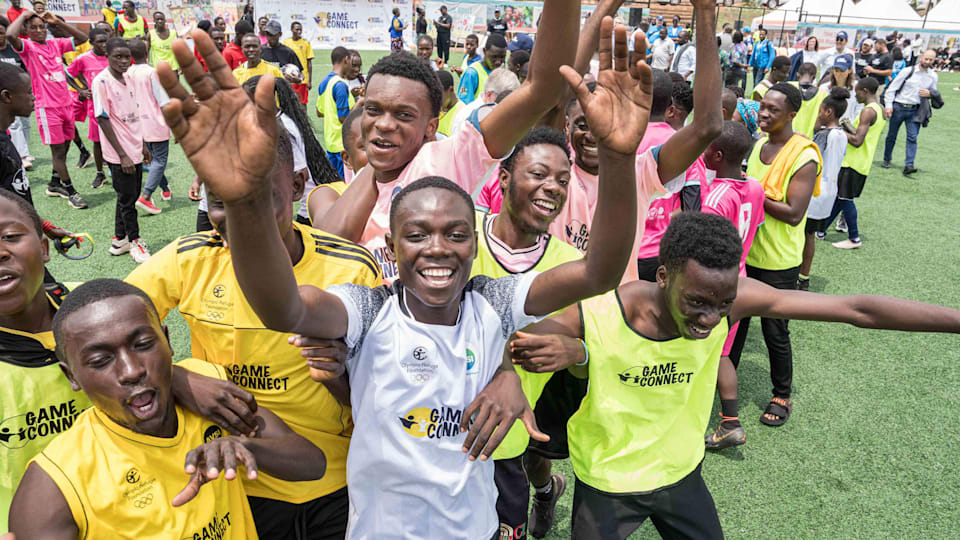One year after the Global Refugee Forum: Almost half a million people reached
A year on from the Global Refugee Forum, members of the Sport for Refugees Coalition – co-convened by the Olympic Refuge Foundation (ORF) alongside UNHCR and the Scort Foundation – have collectively reached almost half a million people affected by displacement through sport and play-based activities.

In December 2023, the IOC President and Chair of the ORF Board, Thomas Bach, addressed heads of state, ambassadors, refugees and the wider humanitarian sector at the Global Refugee Forum to present the Multi-Stakeholder Pledge on Sport for Inclusion and Protection.
At the time, President Bach highlighted the Pledge’s focus: “The message of our pledge is clear: sport is supporting displaced people around the world.”
Since then, the extent to which sport is supporting displaced people has become even clearer. Some 143 entities have made commitments to the Sport Pledge, and this has collectively resulted in more than 445,000 people affected by displacement having been supported through sport. Commitments have so far been implemented in 82 countries, and more than 2,000 clubs, organisations or initiatives have been supported to help extend access to displaced people since January.
Addressing the Forum in Geneva at the time, the IOC President highlighted why the reach and impact of this Pledge is important: “With far too many wars and conflicts displacing millions of people on a scale we have never seen before, this power of sport has never been more important. Sport is a low-cost, high-impact tool, especially for displaced young people, to find belonging; to empower them; to rebuild their lives and to shape their own future.”
Around the world, more than 100 sporting spaces have been newly created or refurbished, giving access to sport to more than 120,000 people of the 445,000 supported thanks to pledging entities.
A team effort
The extent and reach of sport to support communities affected by displacement are a result of a growing movement by organisations from across the sports ecosystem. It is increasingly clear that this is work that takes place through multi-sectoral partnerships.
This growing movement is brought together under the umbrella of the Sport for Refugees Coalition, which also functions to create linkages and find synergies between member organisations. Of the pledging entities, 54 per cent are now collaborating with other members of the Sport for Refugees Coalition to deliver their work. Even more impressively, 70 per cent of organisations are implementing pledges in collaboration with other organisations.
The Olympic Movement has contributed significantly to this work, with 33 National Olympic Committees (NOCs) and NOC continental associations having made commitments to the pledge, and 24 International and National Federations.
The work to ensure that every person affected by displacement can access and benefit from sport requires a team effort – a multi-sectoral approach bringing together the unique skill sets of organisations and actors working across different spaces and professions. As a co-convenor of the Sport for Refugees Coalition, the ORF is working to shape a movement that ensures young people affected by displacement thrive through sport.